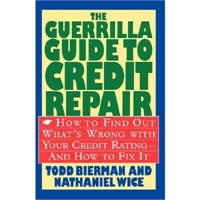Using Prepaid Credit Cards To Build Credit
By
Easy Tips
—
Thursday, 19 July 2018
—
Credit Tips

Credit card companies have a substantial control over your credit score and so do the other lenders. These lenders and companies keep on reporting information to agencies such as Experian, Equifax, and TransUnion, which keep a track of your credit related activities, reports, and most important of all, your credit score.
When the company or a lender reports a non-payment or late payment of a bill, the score is brought down, and on the other hand, in cases where a timely payment is reported, it goes up. These cards work in the exact opposite manner as their conventional counterparts. When you get a prepaid credit card approved, the company gives you an account, in which you need to transfer or deposit a sum of money. This way, it gets charged with the sum deposited in the account, and the money can be spent through it.
Now, in such instances, companies give a positive report to the consumer reporting agency, when you deposit the said money into the account, thereby increasing your score. Some companies, however, provide the same, after you swipe the card and conduct the transaction. Thus, your score keeps getting steadily improved with each transaction; all you need to do is feed the account with money and keep using that card. The only common thing between a prepaid and conventional credit card is that the company charges a membership fee, and also, an APR (Annual Percentage Rate) in both the cases.
In certain cases though, if you own other such cards, or are a long-time customer of the company, then you can also get one with no fees. Almost all credit card companies make and operate accounts for prepaid cards. The best prepaid card is the one that charges less fees, and at the same time, reports to almost all the consumer reporting agencies. There are some cards that have a certain overdraft facility, which means that the card can be used to spend more than the money deposited in the account.
If you aren't aware of those simple actions, here are 5 quick and easy steps to do credit repair yourself. 1. Access a copy of your credit report - you are entitled to a copy of your credit report for free once a year. You can access it in the mail, by phone, or even online.
Although you get this free credit report, be sure to also get your credit scores along with your report, as this is the foundation for doing credit repair for yourself. 2. Check your credit report for errors - this is one of the biggest factors that credit repair agencies bank on - the mistakes that can you easy remove yourself while you're in the process of credit repair. Look for wrong addresses, wrong social security numbers, accounts with balances that you've already paid off, and even accounts with late payments that were actually made on time.
3. Negotiate account payoffs - here's another area that you are typically charged for by credit repair agencies which you can avoid by doing the credit repair yourself. All you have to do is call your creditors on collection or past due accounts and ask them to settle with you. Just let them know that you will pay off the balance, but that you are only able to pay a certain amount.
If the creditor agrees, you have just saved a few hundred dollars and you now have a zero balance on that account. 5. Continue monitoring your credit score - here's where most people miss it big time. They take the initial actions to repair their credit themselves, but then they never follow up to be certain that those actions really helped their credit scores. That's the pitfall of doing credit repair yourself; you may not have a good system for following through until you get the results in your credit that you are looking for.
The best tool to use here is a calendar and simply putting reminders every one to two months to check your credit report and credit scores again. As you can see, these are all simple steps that will guide you along the way to do the credit repair yourself. If you can do these 5 simple steps, then you have just saved yourself hundreds of dollars by not having others do it for you.
Wenk’s businesses purportedly arranged financing for clients to buy real estate regardless of their credit score or income and also offered credit repair services. In pleading guilty, Wenk admitted that between 2015 and last year he defrauded clients of money for services he did not deliver and lied to potential clients to get their business.
Credit repair, is in a word, vital to reestablishing your credit. Unless you plan to never use your credit again, then you have to find a way to fix it. In the world we live in, having credit available to you is important, even if you dont use it regularly. What do you do, then when something goes wrong and you end up with bad credit,